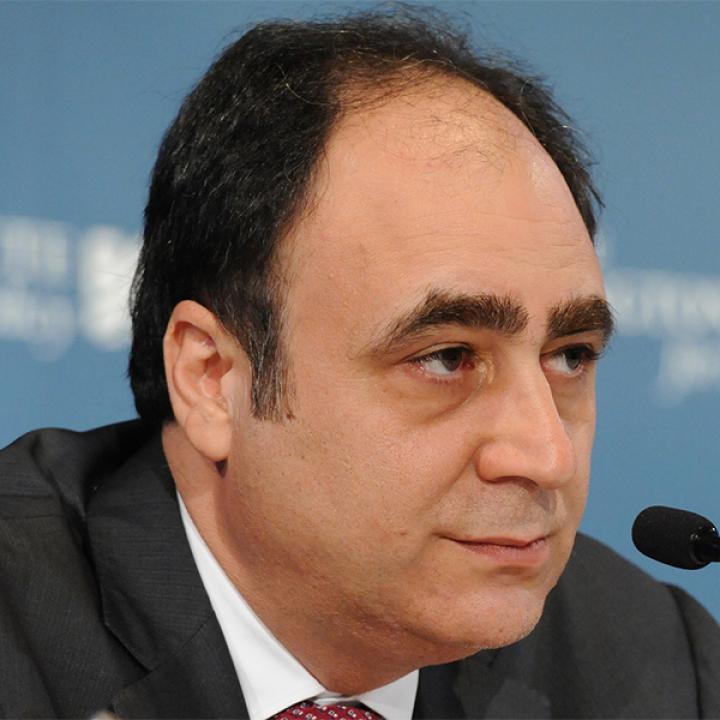

Before Hezbollah's massive intervention in 2013, Bashar al-Assad's forces were nearing exhaustion, Syrian Opposition Coalition chief of staff Monzer Akbik said during a panel discussion at The Washington Institute's 2014 Weinberg Founders Conference on May 8. Assad was facing a catastrophic human-resources and materiel crisis, Akbik said, which the dictator solved with the aid of Hezbollah and other Iran-backed Shiite militias and with supplies from Iran and Russia. Yet while Syrian rebels are under-armed and under-resourced, they retain superior determination and flexibility on the Syrian battlefield.
Akbik urged the United States to accelerate the delivery of more and heavier weaponry to politically moderate rebel units, who Akbik said are effectively fighting a two-front war against both the Assad regime and rebel jihadists, some of whom are aligned with al-Qaeda.
Lebanese journalist Hanin Ghaddar, managing editor of NOW News, shared a regional perspective on the cascading effects of the conflict on Syria's neighbors and beyond. With an estimated 2 million Syrian refugees now in Lebanon - a country with only 4.4 million citizens - Ghaddar warned that isolation and poverty risk driving thousands into radicalization and extremism that the Lebanese government has neither the means nor the will to address. With similar situations playing out among refugee populations across the Middle East, sectarian tensions are on the rise and "the region is boiling."
Monzer Akbik is Chief of Staff to Ahmed Jarba, president of the Syrian Opposition Coalition.
Hanin Ghaddar is managing editor of Lebanon's English-language NOW News.
Andrew J. Tabler, who moderated this discussion, is a senior fellow at The Washington Institute.



